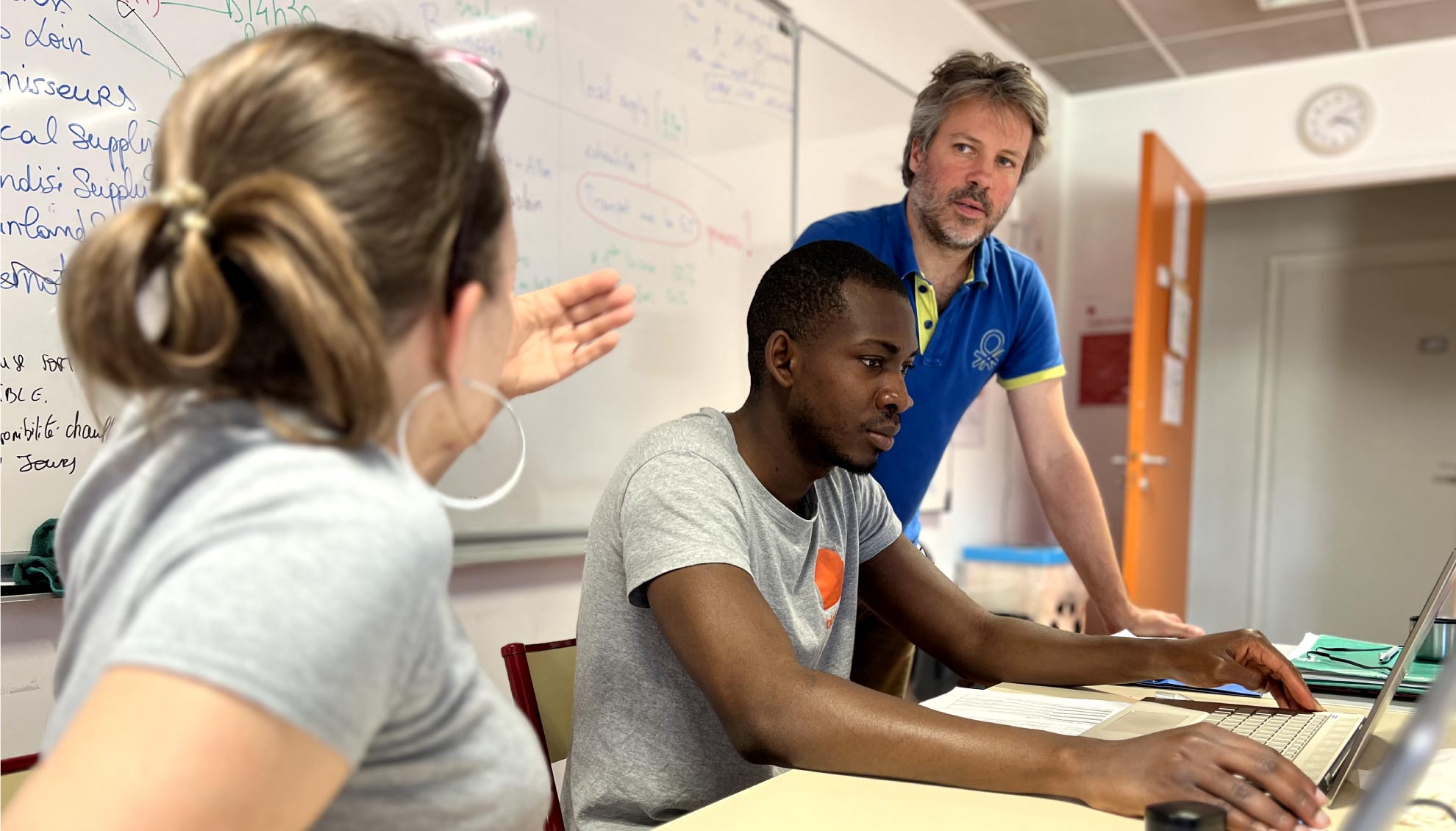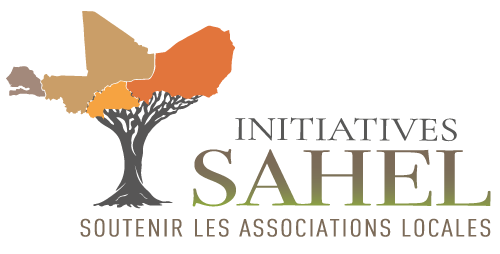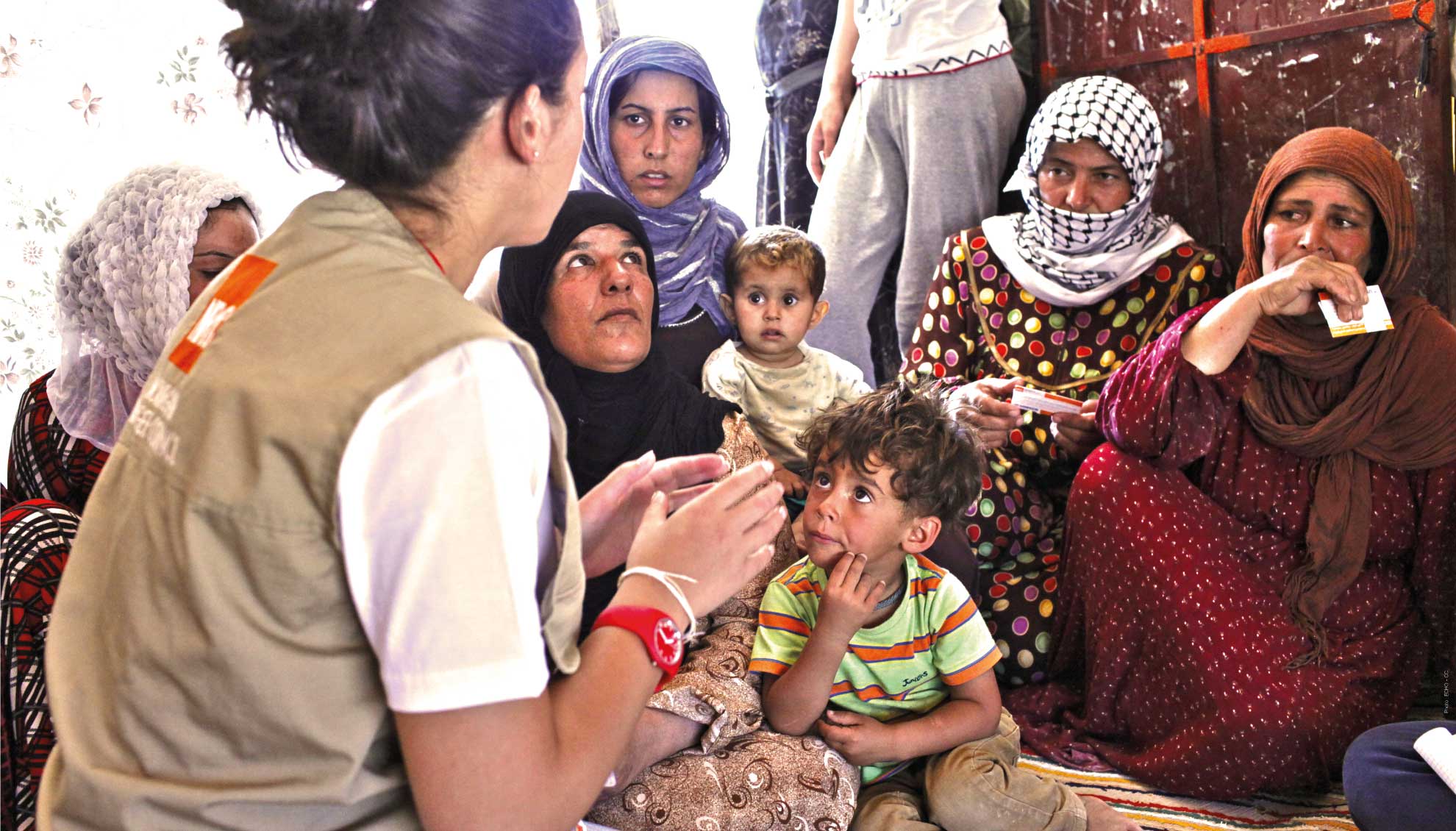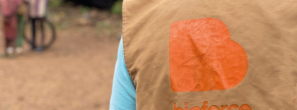
Annual report 2021: a new stage
In a global context still marked by the health crisis, the year 2021 saw an 8% increase in the number of people trained in 19 countries, thanks to the strong mobilisation of all Bioforce teams in France, Senegal, the Central African Republic, Guinea, Lebanon and Jordan.
2998 people trained
Despite the demanding conditions for all, our volume of activity remains on the rise, with an 8% increase in beneficiaries and operations in 19 countries compared to 18 in 2020. So, in 2021 2103 humanitarian actors of today and tomorrow and 895 civil society organisations staff were trained, and 176 organisations were supported in crisis-affected zones.
In the training centres, we persisted in adapting our teaching in line with developments in the health crisis. The continued measures in place to reduce travel, in addition to the trend towards greater interest in online learning, explain the positive response to our remote learning range (up 14%). Digitising our training is a sure way of addressing the challenges of accessibility.
Our strategy to implement open courses in the field, as close as possible to humanitarian professionals, has continued to prove its worth, with 933 people trained (up 109%) in DRC, CAR, Niger, Mali, Burkina Faso, Chad, Cameroon, Lebanon, Iraq and Jordan.

Key figures 2021
More partners at our side
Also on the subject of field operations, two significant capacity building initiatives came to an end in CAR: one of which built the capacity of 223 Central African aid organisations in three years, while the other put into effect a new operational model combining humanitarian action and capacity building.
Advocacy work on the importance of local stakeholders in crisis management continued, and we are delighted to see that this has received positive feedback from many partners. In Guinea, the French Development Agency has been supporting our programme to help the Guinean National Health Security Agency (ANSS) organise its range of training. In Lebanon, the French Foreign and European Affairs Ministry’s Crisis Management and Support Centre approved the implementation of a second mentoring project with a national NGO in 2022, based on the Central African experience.
Four other major stakeholders are supporting this commitment to greater localisation. The Principality of Monaco, an existing partner of our Africa centre, and the United Nations Agency for Refugees, signed a memorandum of understanding with Bioforce to train refugees and internally displaced people in Niger on humanitarian and development skills and professions, which has been operational since 2022. The Mérieux Foundation and the Jameel Community Foundation have supported Bioforce in drafting a plan for a future site in the Middle East. Despite obstacles and delays due to the health crisis, an initial opportunity study was nevertheless conducted in 2021, and the project will continue taking shape in 2022.
A new stage in Bioforce’s development over the coming years begins in 2022, which will naturally be marked by the enthusiasm and energy to create and innovate, as always for the benefit of the most vulnerable.
The entire Bioforce team would like to thank you for the continued trust you have placed in us!



